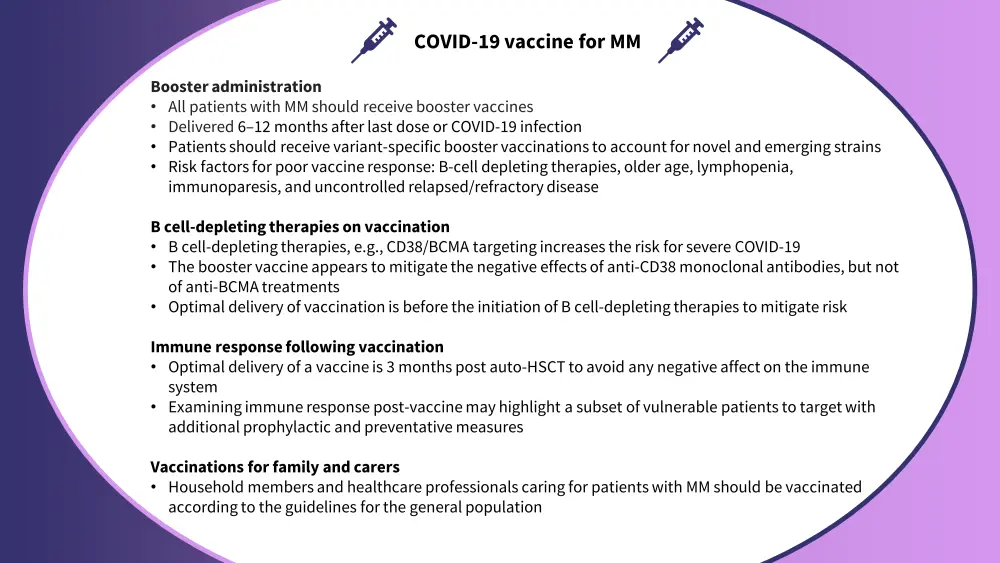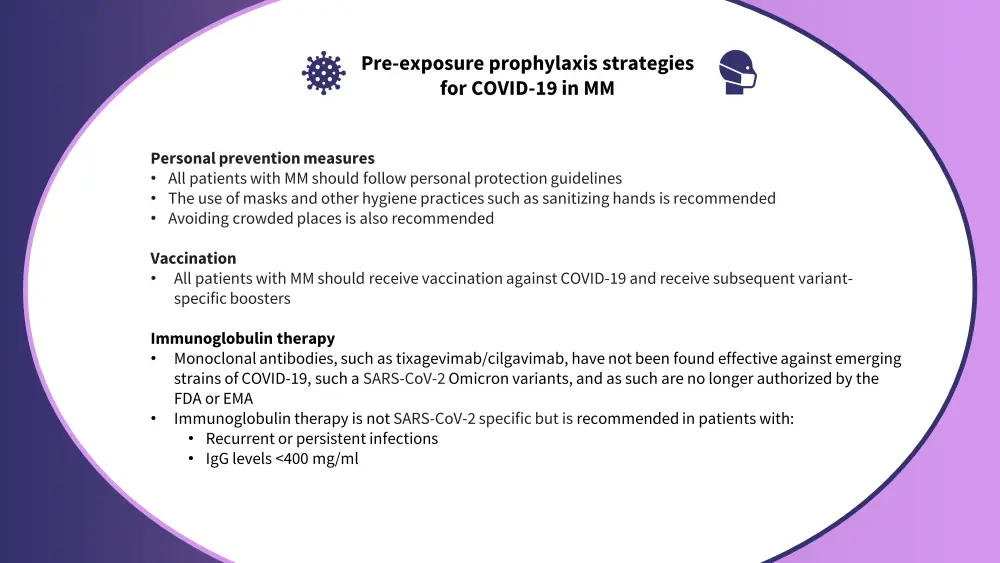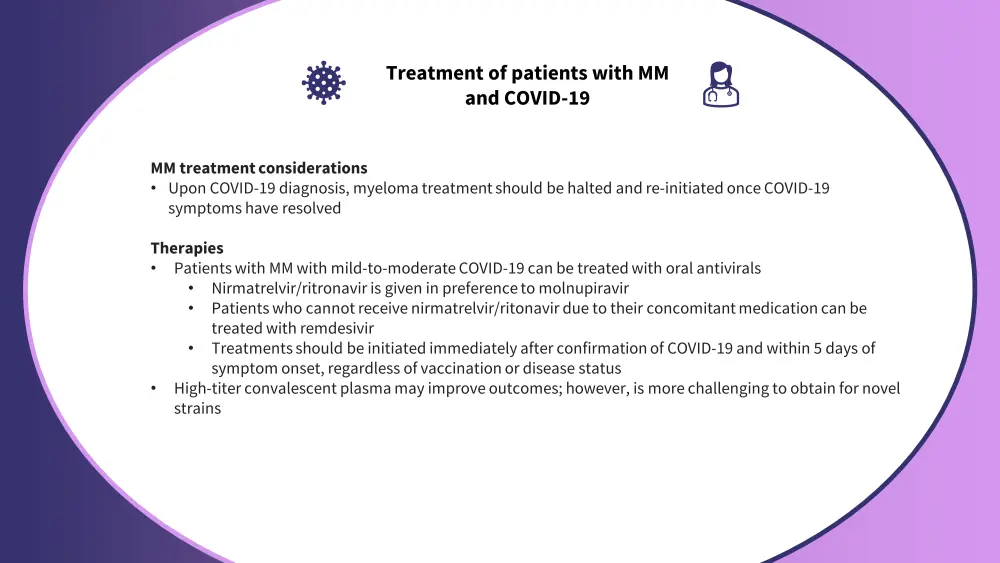All content on this site is intended for healthcare professionals only. By acknowledging this message and accessing the information on this website you are confirming that you are a Healthcare Professional. If you are a patient or carer, please visit the International Myeloma Foundation or HealthTree for Multiple Myeloma.
The mm Hub website uses a third-party service provided by Google that dynamically translates web content. Translations are machine generated, so may not be an exact or complete translation, and the mm Hub cannot guarantee the accuracy of translated content. The mm and its employees will not be liable for any direct, indirect, or consequential damages (even if foreseeable) resulting from use of the Google Translate feature. For further support with Google Translate, visit Google Translate Help.
The Multiple Myeloma Hub is an independent medical education platform, sponsored by Bristol Myers Squibb, GSK, Legend Biotech, Pfizer, and Roche. Funders are allowed no direct influence on our content. The levels of sponsorship listed are reflective of the amount of funding given. View funders.
Now you can support HCPs in making informed decisions for their patients
Your contribution helps us continuously deliver expertly curated content to HCPs worldwide. You will also have the opportunity to make a content suggestion for consideration and receive updates on the impact contributions are making to our content.
Find out more
Create an account and access these new features:
Bookmark content to read later
Select your specific areas of interest
View multiple myeloma content recommended for you
EMN recommendations for the management of MM and COVID-19 in the post-pandemic era
Do you know... How long after a COVID-19 infection or vaccination should patients with MM receive a booster?
COVID-19 infections present an increased risk to patients with multiple myeloma (MM); characterized by higher rates of hospitalization and death.1 In the post-pandemic era, the management of patients with MM is generally improved, resulting in fewer cases of severe COVID‑19. However certain anti-myeloma therapies such as anti-CD38 antibodies and BCMA targeted therapies increase the risk of severe COVID-19.1
The European Myeloma Network (EMN) has provided recommendations for the management of patients with MM to reduce the incidence of infection-related poor outcomes in COVID-19.1 The Multiple Myeloma Hub is pleased to summarize this consensus here.
Vaccination for COVID-19
Patients with MM are often immunodeficient, which can limit the durability of response to vaccination. The typically advanced age of patients with MM, as well as other disease-related comorbidities, further reduce the overall effectiveness of the COVID-19 vaccine. To address this, the EMN highlight booster vaccinations as key in managing these patients.
The EMN recommendations for COVID-19 vaccinations in patients with MM are highlighted in Figure 1.
Figure 1. EMN recommendations for vaccination of patients with MM in the post-pandemic era*

auto-HSCT, autologous hematopoietic stem cell transplantation; BCMA, B-cell maturation antigen; MM, multiple myeloma.
*Data from Terpos, et al.1
Pre-exposure prophylaxis and treatment for COVID-19
The use of pre-exposure prophylaxis interventions is beneficial to patients with MM as a preventative method to reduce the risk of severe COVID-19 requiring hospitalization. Figure 2 outlines the recommended prophylaxis strategies for COVID-19 in patients with MM.
Figure 2. EMN recommendations for pre-exposure prophylaxis for COVID-19 in MM*

EMA, European Medicines Agency; FDA, U.S. Food and Drug Administration; MM, multiple myeloma.
*Data from Terpos, et al.1
Following symptom onset and a positive test result for COVID-19, swift treatment is optimal to reduce the likelihood of poor outcomes. The recommended therapies for the treatment of COVID‑19, as well as considerations for managing existing myeloma treatment, are outlined in Figure 3.
Figure 3. EMN recommendations for the treatment of patients with COVID-19 and MM*

MM, multiple myeloma.
*Data from Terpos, et al.1
Conclusion
In the post-pandemic era, patients with MM remain at a higher risk of severe COVID‑19 compared with the general population. However, emerging strains pose a lower risk than the initial strains. Prophylaxis efforts remain at the forefront of protecting patients with MM; vaccination and personal protective measures such as wearing masks are key to mitigating the risk of infection and hospitalization. Certain subsets of patients with MM remain at a higher risk, specifically those receiving anti-BCMA therapies. Antiviral therapies or remdesivir can be used to treat patients with symptomatic COVID‑19 due to their effectiveness against Omicron subvariants.
References
Please indicate your level of agreement with the following statements:
The content was clear and easy to understand
The content addressed the learning objectives
The content was relevant to my practice
I will change my clinical practice as a result of this content
Your opinion matters
On average, how many patients with MGUS/smoldering MM do you see in a month?


